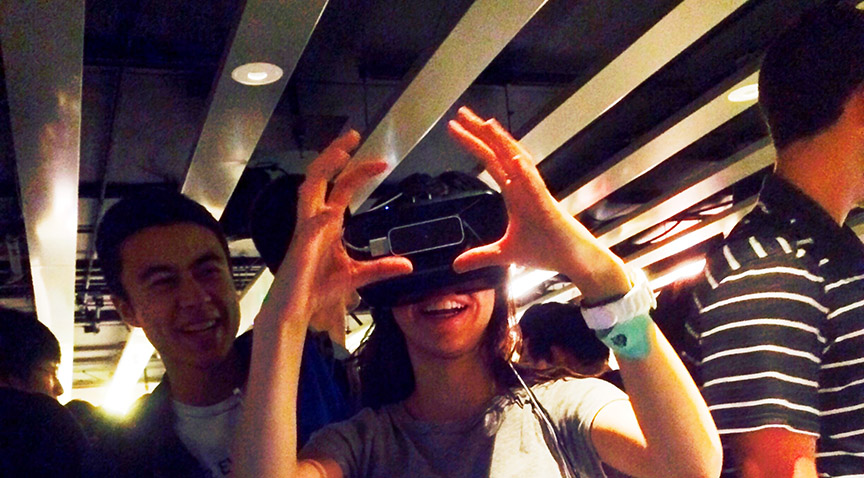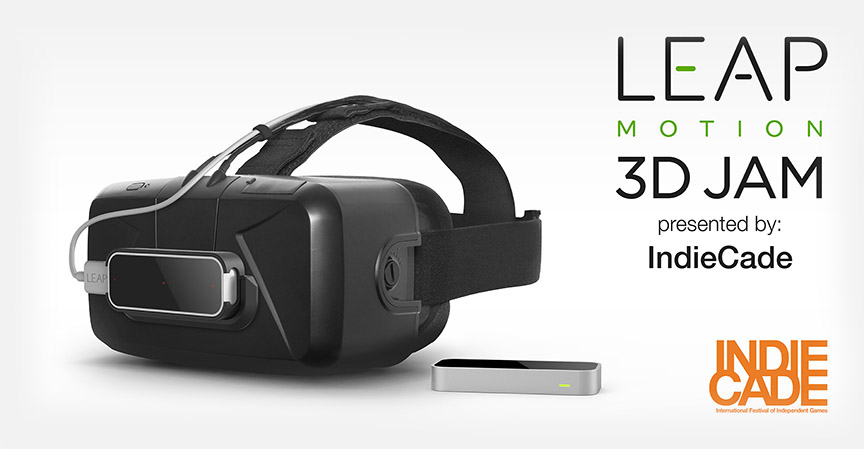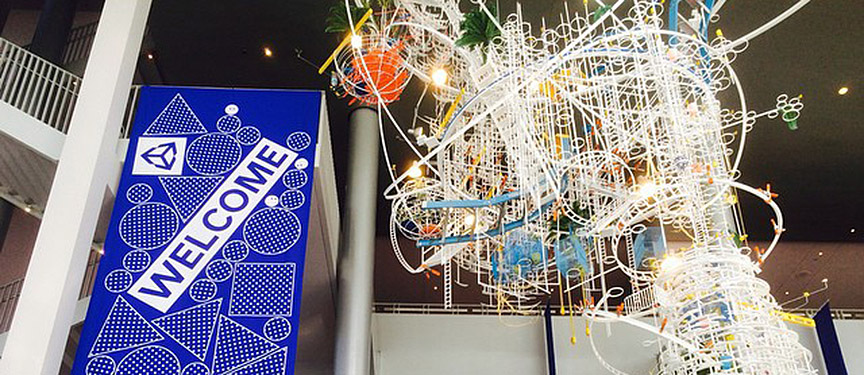Developers, start your engines! Starting on October 19th, Leap Motion and IndieCade are kicking off a six-week global competition for developers to build innovative experiences for desktop, virtual reality, and beyond.
// Events

It’s no secret that for many developers in our community, midnight is the hour when the hacking gets good. Late last Friday night, over 1,000 undergraduates from across the country poured into California Memorial Stadium for Cal Hacks, a 36-hour coding spree put on by Major League Hacking. Sponsors ranging from tech’s biggest players to […]
Rio de Janeiro’s fourth annual ArtRio Festival overtook Pier Mauá last week. Fifty thousand visitors wandered through over 100 different galleries, taking in world-renowned works right alongside pieces from up-and-coming names. True to Brazil’s flair for the evocative, however, festivalgoers could not only consume art, but create it themselves – designing their very own Heineken […]

There’s no denying the buzz around hackathons transforming computer science education, or technical education overall. Over the course of 24 hours (or a weekend) coders can join together in massive marathon sessions, playing with real-world code for fun and prizes. On the other hand, classes are often portrayed as the opposite extreme – slow, unexciting, overly focused on theory.
How we think about everyday objects is changing with accessible 3D printing, and new tools are emerging to make it easier to design and create just about anything you can imagine. Sculpteo and the Autodesk Gallery recently hosted a “Decoding 3D Printing” workshop to help hobbyists and professionals get up to speed in an afternoon. […]

The way we interact with technology is changing, and what we see as resources – wood, water, earth – may one day include digital content. At last week’s API Night at RocketSpace, Leap Motion CTO David Holz discussed our evolution over the past year and what we’re working on. Featured speakers and v2 demos ranged from Unity and creative coding to LeapJS and JavaScript plugins.
We live in a heavily coded world – where the ability to talk to computers, and understand how they “think,” is more important than ever. At the same time, however, programming is rarely taught in schools.
What can virtual environments teach us about real-world issues? At last month’s ImagineRIT festival, Team Galacticod’s game Ripple took visitors into an interactive ocean to learn about threats facing coral reefs.
We recently received an intriguing call from Puzzle Break, a Seattle-based company that specializes in building mysterious rooms. The types of mindbenders you’ve encountered in video games, except rendered in real life.


